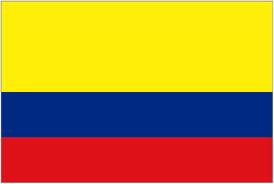 Luisa Fernanda Guzmán Mejía (@lfdagm)
Luisa Fernanda Guzmán Mejía (@lfdagm)
Digital Rights LAC, Link (CC-BY-SA)
Since its enactment, theLaw No. 1680 of 2013 has been crucial for the recognition, respect and safeguard to the rights of the blind and low vision. Thanks to this Act, now they have free reading tools (such as Jaws screen reader software and Magic screen magnifier software), which enable autonomous and independent exercise of their rights. This standard has also made possible the substantial reduction of legal barriers responsible for thedeficient supply of works in accessible formats already published, as it establishes an exception and limitation to copyright (art. 12).
Despite the importance of the Act for the effective inclusion and full participation for people who are blind and low vision in all aspects of life, it has been questioned before the Constitutional Court to declare it unconstitutional. This fact raised various citizens’ reactions, which was materialized in citizen interventions before the Constitutional Court. One of the most interesting was the op-ed by activist María del Pilar Sáenz entitled “Challenge to the digital brigade” published on December 12, 2014 on the website Las 2 Orillas, which resulted in the#DefiendoLey1680 movement led byDigital Brigade collective through which more than 40 citizen interventions in response to the last of the 3 cases filed.
Fundación Karisma presented citizen interventions before the Constitutional Court, together with theProgramme of Action for Equality and Social Inclusion (PAIIS, in Spanish) of the University of the Andes, in addition to those filed with theDigital Brigade’s movement, requesting the Court to dismiss all charges and declare the constitutionality of the entire law.
On January 28, the Court issued apress release in which announced its decision over the first lawsuit, filed by citizens Luis Fernando Alvarez and Juan David Jaramillo Marín López. Although the full text of the judgment (Case C-035/15) is unknown, the Court found that the Act 1680 in its entirety and Article 12 thereof were in line with the Constitution. Thus, the Court declared the constitutionality of the law.
Considerations of the Court
The Constitutional Court, after discarding two of the charges proposed by the plaintiffs on grounds of non-compliance with minimum argumentative requirements for a substantive ruling over them, solved two legal problems. The Court examined (i) whether the Law 1680 in its entirety should have been processed as a statutory law to develop the principle of substantive equality for blind people, and (ii) whether the waiver under Article 12 of the law for reproduction, distribution, communication, translation, adaptation, arrangement or transformation into Braille or other accessible formats for people who are blind or low vision of literary, scientific, artistic or audiovisual works, was reasonable and proportionate, and therefore, valid from a constitutional point of view.
On the first charge under review, the Court found that the law should not be processed via statutory law as there was not a development of the right to material equality, nor was a rule intended to define structural aspects of the rights of people with disability. To solve the second charge, the Court conducted a balance between the rights of blind or visually impaired persons to access to literary, scientific or artistic works that are not in accessible formats, and copyright (including the right to receive a sum of money). The Court concluded that the impossibility faced by beneficiaries of standard to access to works “is a particularly intense and empirically affectation of their fundamental right to the existence of an inclusive environment for access to information and knowledge,” in conjunction to other rights such as education and culture; while the effect on the economic rights of authors was small due to guarantees that the mentioned article established in their favor (the exception applies only to nonprofit uses of works, and provided these are not previously published works in accessible formats for commercial purposes).
The Court considered that specialized international organizations such as the World Blind Union and the World Intellectual Property Organization, as well as interventions sent by citizens, have extensively documented the disproportion between books published in traditional printed format, as opposed to those adapted or translated into accessible formats.
What is the panorama after this decision?
After this important legal victory for the blind and low vision, the Constitutional Court has yet to decide on two lawsuits against the Law 1680. Due to the similarity of the charges of pending claims, as opposed to the previously studied cases by the Court, it is possible that the “constitutional double jeopardy” principle applies, therefore, the Court cannot address, process and rule on what already solved. This legal figure precisely prevents that the ruling of the constitutionality of a rule already examined by the Court is reopened, and aims for legal certainty.
Those who participated in citizen interventions hope that after the decision, the Constitutional Court, whatever the scenario (whether the double jeopardy operates or not), keeps the line drawn by Case C-035/15 and urges the Congress to ratify promptly the “Treaty of Marrakech to Facilitate Access to Published Works for Persons Who Are Blind, Visually Impaired, or Otherwise Print Disabled” to ensure widely and effectively the rights of persons with disabilities in Colombia.
::
- *Luisa Fernanda Guzmán Mejía (lfdagm). Lawyer and researcher at Fundación Karisma’s “Law, Internet and Society” Group.
Translated by Amalia Toledo.




